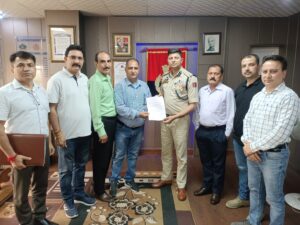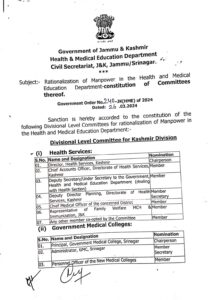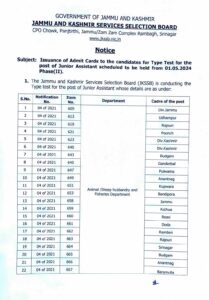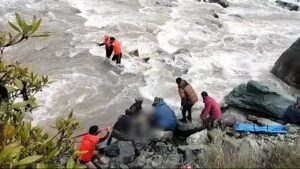PM inaugurates 9th G20 Parliamentary Speakers’ Summit (P20)
“The Summit is a unique confluence of various parliamentary practices from around the world”
“P20 Summit is taking place on the land which is not only known as the mother of democracy but is also the largest democracy in the world”
“India not only conducts the world’s largest elections, but people’s participation in it is also continuously increasing.”
“India has connected the election process with modern technology”
“India today is promoting women’s participation in every sector”
“A divided world cannot provide solutions to the major challenges facing humanity”
“This is the time of peace and brotherhood, a time to move together. This is a time for growth and well-being of all. We have to overcome the global trust crisis and move forward with human-centric thinking”

The Prime Minister, Shri Narendra Modi inaugurated the 9th G20 Parliamentary Speakers’ Summit (P20) at Yashobhoomi, New Delhi today. The summit is being hosted by the Parliament of India under the broader framework of India’s G20 Presidency with the theme of ‘Parliaments for One Earth, One Family, One Future’.
Addressing the gathering, the Prime Minister welcomed the dignitaries to the G20 Parliamentary Speakers’ Summit on behalf of 140 crore citizens of India. “The Summit is a ‘Maha Kumbh’ of all Parliamentary practices from across the globe”, the Prime Minister remarked. Underlining that all the delegates present today hold the experience of the Parliamentary framework from different countries, Shri Modi expressed great satisfaction with today’s event.
Referring to the festive season in India, the Prime Minister said that G20 kept the festive fervor going throughout the year as G20 festivities pervaded many cities where G20-related events were organized during India’s presidency. These festivities were augmented by events like the moon landing of Chandrayaan, a successful G20 summit and the P20 summit. “The biggest strength of any nation is its people and their will power and this summit is a medium to celebrate that”, he said.
The Prime Minister emphasized that the P20 Summit is taking place on the land which is not only known as the mother of democracy but is also the largest democracy in the world. As representatives of different Parliaments from around the world, the Prime Minister underlined the importance of debates and deliberations as he mentioned accurate examples of such debates from history. He informed that assemblies and committees have found a mention in the five-thousand-year-old Vedas and scriptures of India, where collective decisions were made for the betterment of society. Speaking about Rigveda, India’s oldest scripture, the Prime Minister recited a Sanskrit shloka which means ‘We must walk together, speak together and that our minds must be conjoined’. He informed that issues related to the village level were resolved by indulging in debates which became a source of great amazement for the Greek ambassador Megasthenes who wrote about it in great detail. The Prime Minister also touched upon a 9th-century inscription in Tamil Nadu which elaborates upon rules and codes of village legislatives. “The 1200-year-old inscription also mentions the rules for disqualification of a member”, he added. Speaking about the Anubhav Mantappa tradition which has been going on since the 12th century in India, and years before the Magna Carta came into existence, the Prime Minister informed that discussions were encouraged where people from every caste, creed and religion were free to express their thoughts. “The Anubhav Mantappa initiated by Jagatguru Basweshwara makes India proud even today”, the Prime Minister remarked as he underlined that the journey of India from 5000-year-old scriptures till today is a heritage of Parliamentary traditions not just for India but the entire world.
The Prime Minister touched upon the constant evolution of and strengthening of the parliamentary traditions of India with time. He informed that 17 General elections and more than 300 state assembly elections have taken place in India since Independence. People’s participation is consistently increasing in this largest electoral exercise. He said the 2019 General election where his party was elected to power was the biggest electoral exercise of human history as 600 million voters participated in that. At that time, he said, there were 910 million registered voters, more than the population of entire Europe. 70 percent turnout among such a large electorate shows the deep faith of Indians in their parliamentary practices. The 2019 election witnessed record participation of women. Referring to the expanding canvas of political participation, the Prime Minister said that more than 600 political parties participated in the last General Election and 10 million government employees worked in the conduct of the elections and 1 million polling stations were erected for voting.
The Prime Minister also dwelled on the modernization of the election process. The use of EVMs since the last 25 years has brought transparency and efficiency to the election process as election results come within hours of the start of counting. He informed that 1 billion people will participate in the general election next year and invited the delegates to witness the elections.
The Prime Minister informed the delegates about the recent decision of reserving 33 percent seats in the Parliament and the state assemblies for women. He also told them that out of more than 3 million elected representatives in the local self-government institutions, almost 50 percent are women. “India today is promoting women’s participation in every sector. The recent decision taken by our Parliament will further enrich our parliamentary tradition”, Prime Minister Modi added.
The Prime Minister highlighted the unwavering faith of the citizens in the parliamentary traditions of India and credited its diversity and vibrancy. “We have people of every faith here. Hundreds of types of food, ways of living, languages, dialects”, the Prime Minister said. He informed that India has more than 900 TV channels in India in 28 languages to provide real-time information to the people, more than 33 thousand different newspapers are published in about 200 languages, and about 3 billion users on different social media platforms. Shri Modi emphasized the huge flow of information and the level of freedom of speech in India. “In this world of the 21st century, this vibrancy of India, unity in diversity, is our greatest strength. This vibrancy inspires us to fight every challenge and solve every difficulty together”, Prime Minister Modi added.
Referring to the interconnected nature of the world, the Prime Minister said that a world full of conflict and confrontation is in no one’s interest. He continued, “A divided world cannot provide solutions to the major challenges facing humanity. This is the time of peace and brotherhood, a time to move together. This is a time for growth and well-being of all. We have to overcome the global trust crisis and move forward with human-centric thinking. We have to look at the world in the spirit of One Earth, One Family, One Future.” Underlining the importance of wider participation in global decision-making, the Prime Minister said that it was behind the proposal to include the African Union in G-20 which was accepted by all the members. The Prime Minister expressed happiness over the Pan Africa participation in the forum of P20.
Speaking about the Lok Sabha Speaker giving a tour of the new Parliament to the delegates, the Prime Minister took the opportunity to highlight the cross-border terrorism faced by India for decades killing thousands of innocent people. Shri Modi recalled the terrorist attack on the Parliament of India about 20 years ago when it was in session and the terrorists were prepared to take the MPs hostage and eliminate them. “India has reached here today after dealing with many such terrorist incidents”, he emphasized as the world is also realizing the huge challenge of terrorism in the world. Shri Modi continued, “No matter where terrorism occurs, for whatever reason, in whatever form, it is against humanity” as he stressed the need to be uncompromising when dealing with such a situation. The Prime Minister also drew attention to the global aspect where no consensus regarding the definition of terrorism is achieved. He underlined how the International Convention on Combating Terrorism is waiting for a consensus in the United Nations even today. He stressed that the enemies of humanity are taking advantage of this attitude of the world as he urged the Parliaments and representatives around the world to come up with ways of working together in this fight against terrorism.
Concluding the address, the Prime Minister underlined that there can be no better medium than public participation to deal with the world’s challenges. “I have always believed that governments are formed by majority, but the country is run by consensus. Our parliaments and this P20 forum can also strengthen this sentiment”, the Prime Minister said and expressed confidence that the efforts to improve this world through debate and deliberations will definitely be successful.
Speaker of Lok Sabha, Shri Om Birla and President of the Inter-Parliamentary Union, Mr Duarte Pacheco were present on the occasion among others.
Background
In line with the theme of India’s G20 Presidency, the theme of the 9th P20 Summit is ‘Parliaments for One Earth, One Family, One Future’. Speakers of Parliaments of G20 members and invitee countries attended the event. The Pan-African Parliament also took part in the P20 Summit for the first time after the African Union became a member of G20 at the New Delhi G20 Leaders’ Summit on 9-10 September 2023.
The thematic sessions during this P20 Summit will focus on the following four subjects – Transformation in People’s Lives through Public Digital Platforms; Women-led development; Accelerating SDGs; and Sustainable Energy Transition.
A pre-summit Parliamentary Forum on LiFE (Lifestyle for Environment) was also held on 12 October 2023 to deliberate upon initiatives towards a greener and sustainable future in harmony with nature.





